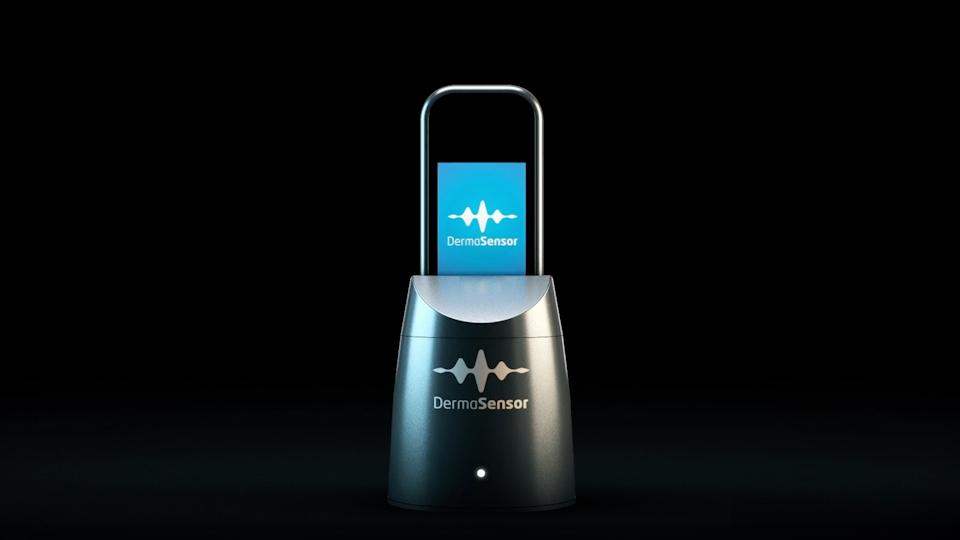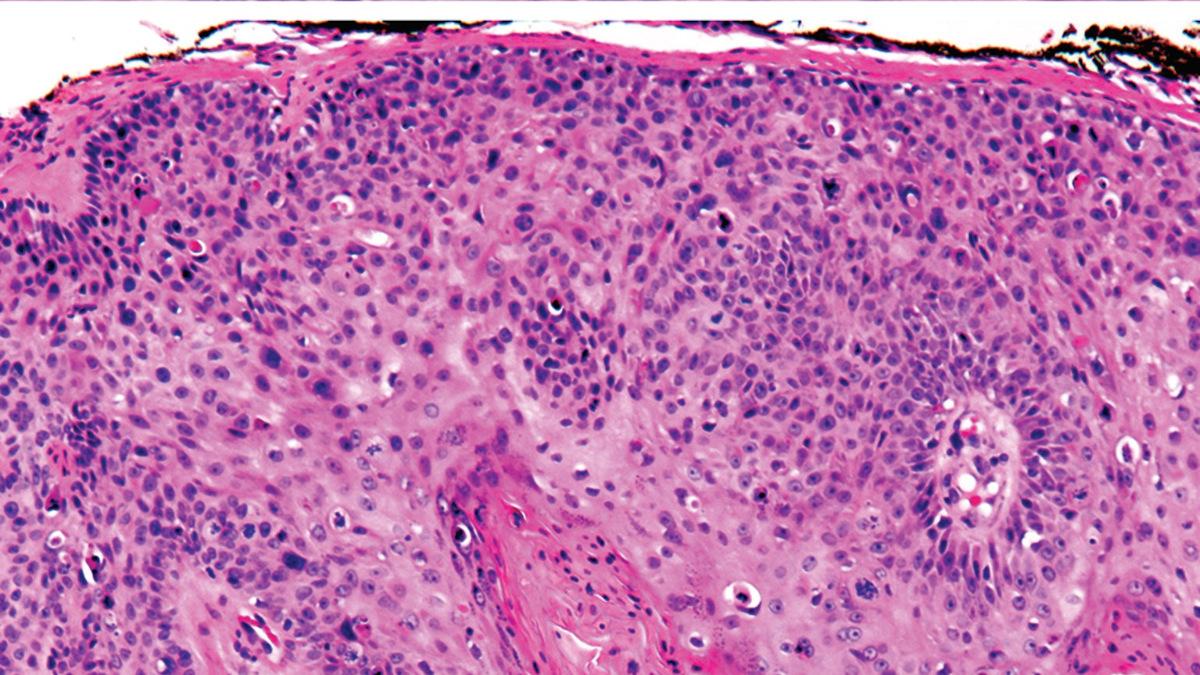FDA clears AI skin cancer detection device from DermaSensor

Medtech company DermaSensor has claimed FDA approval for a handheld device, powered by artificial intelligence (AI), that can be used to detect skin cancer at the point of care.
The eponymous device, the first FDA-cleared skin cancer device for primary care use, combines a light emission technology called elastic scattering spectroscopy (ESS) that measures the physical properties of tissue with an AI algorithm to interpret the data.
It can deliver a result within seconds when the optical probe on the device is applied to a suspect lesion on the skin, making it suitable for use by primary care physicians, according to DermaSensor. It is viewed as an addition to the visual assessment by a doctor that is the current standard in primary care.
“It’s non-invasive, easy to use, and requires minimal training,” said DermaSensor’s chief executive, Cody Simmons.
The healthcare professional simply puts the probe over the lesion, sets the device running, and it carries out five recordings within a few seconds. The algorithm then analyses the ESS data and provides an objective result, with an ‘investigate further’ result prompting further evaluation and referral.
“We are entering the golden age of predictive and generative artificial intelligence in healthcare, and these capabilities are being paired with novel types of technology, like spectroscopy and genetic sequencing, to optimise disease detection and care,” added Simmons.
Nearly 10,000 people in the US are diagnosed with skin cancer every day, and only a small fraction undergo annual skin exams recommended to look for lesions that may turn out to be malignant. The annual cost of treating skin cancers in the US is estimated at $8.1 billion.
DermaSensor’s AI algorithm was developed and trained on more than 20,000 scans of around 4,000 benign and malignant skin lesions like melanoma, basal cell carcinoma, and squamous cell carcinoma – the three most common forms of skin cancer.
Its approval is based on a pivotal trial involving more than 1,000 patients, led by the Mayo Clinic, which found that the device had a sensitivity of 96% across all 224 skin cancer cases in the cohort, and a 97% chance of accurately identifying a lesion as benign.
Meanwhile, a supporting study involving 108 primary care physicians found that the use of DermaSensor decreased the number of missed skin cancers by half, from 18% to 9%.
DermaSensor has previously received a CE mark, authorising its sale in Europe, Australia, and New Zealand.
Getting FDA approval was a long process – an earlier, bulkier version of the device was first submitted back in 2016 – but the company now intends to start shipping its first devices in the US within weeks.
It is using a subscription-based commercial model, set at $199 a month for five patients or $399 per month for unlimited use, according to Reuters.













